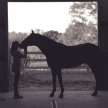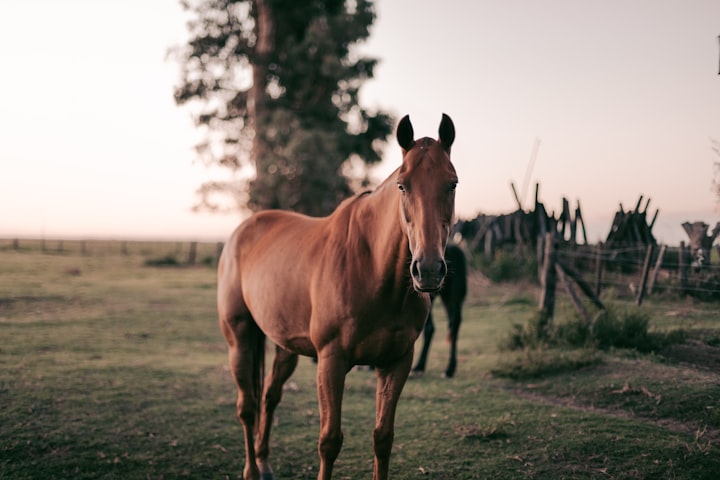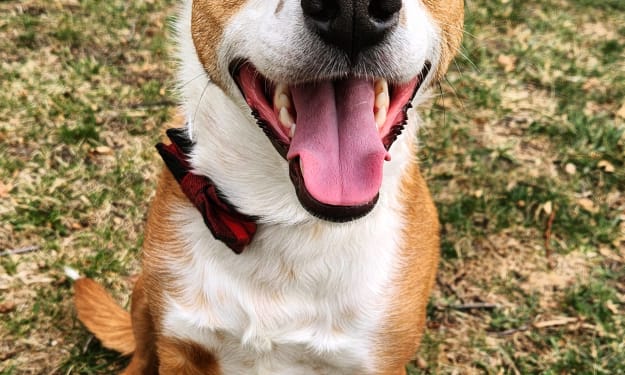Over Rugging Horses - A Serious Welfare Issue
Your horse is not a human, just because you are cold, doesn't mean your horse is

We've all been there. The heavens open, the temperature drops and we instantly think about our horses. Are they warm enough, are they comfortable? Should we bring them in, or should we put them out? Which rug should I put on today?
This is all fair enough, but people are taking it to the extreme and causing one of the biggest welfare issues in the equine world. And it is completely avoidable.
Horses are very well designed to withstand the cold. A horse's thermal neutral zone is between O℃ and 25℃. This means that between those two temperatures, a horse can easily regulate its body temperature.
Many people think that if they are cold, their horse is cold. This is completely incorrect. A human's thermal neutral zone is 14.8℃ to 24℃. Which as you can see is nearly a 15℃ difference. So when it is 5℃ and you are cold. it certainly does not mean that your horse is.
Thermoregulation is a very important part of a horse's health and how it gains and loses weight. A horse's core body temperature is the same as ours, 38℃. For a horse to keep its core temperature that high, it has a few different ways of doing it.
- Movement or shivering makes the large muscles generate heat.
- They naturally shelter when they need to, or turn from rain, huddle up etc
- The hairs on their body will lift to trap heat, much like us getting goosebumps
- The natural oils in their coat help to waterproof them and keep them warm
- When the temperature drops, the blood is diverted from the extremities to the internal organs to warm them
- Because of the hair, horses don't lose body heat like humans
- Horses have a caecum, instead of an appendix. This breaks down bacteria in the gut, and in doing so, creates heat.
One of the natural advantages of horses being cold over the winter is weight loss. This natural weight loss helps with the reduction of the risk of EMS and Laminitis when it comes to Spring. Horses should be coming out of winter with their ribs just visible.
If horses are over-rugged, the excess energy they get from being over-rugged will lead to weight gain with an extra layer of fat, and an increased risk of EMS and Laminitis.
Now in terms of rugging, it is fair to say that there are horses that do need rugs and those that don't. So we need to take into account a few things.
- Age
- Health
- Breed (Arabs, Thoroughbreds etc have naturally thinner coats)
- Are they clipped?
- Weight
- Level of work
- Are they stables or turned out
- Access to forage
- Access to shelter
Now we have discussed turning out before, so if you have no access to turnout during the winter, that is a different welfare issue that you need to sort out. If the horse is turned out, then it should have access to shelter, plenty of forage and space to move around.
Shelter from the rain is a much better way of helping your horse keep warm than putting a rug on it, and so is giving them plenty of forage.
In terms of breeds, natives can regulate their temperatures better without a rug in temperatures as low as -16℃, which in the UK is pretty much as low as they go. So please do stop overrugging your natives.
In fact for most breeds, a rug should not even be considered until the temperature drops below 10℃ consistently.
Your horse can warm itself up far easier than it can cool itself down, and the health issues caused by overheating can be deadly. Over rugging causes many issues such as;
- It eliminates the ability to regulate their core temperature
- Weight gain
- Risk of colic
- Skin infections
- Rubbing and sores
- Sweating and dehydration
- Vitamin D2 deficiency from lack of sun (reduces bone strength)
- Heat stress
- Loss of appetite
- Rapid heart rate
- Rapid breathing
- Lethargy
- Death
Remember, feeling your horse's ears and legs is not a good indicator of how warm they are. Many horses will gain a thick, oily winter coat, so make sure that you don't overgroom them and remove the oils.
The Blue Cross is asking people to think before they rug.
Don't be pressured or influenced by people around you and the decisions you make. Every horse is different, what works for their horse may not work for yours.
And please, for the love of God, stop rugging for fashion. Yes, it might be a funky rug, but does your horse need a heavyweight with a neck when it is 10℃?
This is a man made welfare issue and it is very easy to fix. Just stop and think, am I over-rugging my horse? And if you are. Stop.
If you are still struggling, may I recommend this book?
About the Creator
Jane Smith
I'm a horsewoman who is angry about everything that is wrong with the horse world in the UK.
I am the woman who is not afraid to say what she thinks, and I'm not going to stop until the world is a better place for horses.






Comments
There are no comments for this story
Be the first to respond and start the conversation.